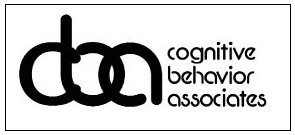ADHD is incredibly common in our society and is being more openly discussed each day. In turn, the number of diagnoses is also increasing. In that way, it seems the destigmatization of mental health care has led to a rise in ADHD diagnoses. As the number of individuals who are diagnosed with ADHD increases, it becomes increasingly important to have public outreach and education surrounding its details.
Fortunately, because this issue has become so commonly discussed, there has been a large amount of destigmatization that has occurred in recent decades regarding ADHD as a mental health diagnosis. This has contributed to higher levels of awareness and functioning in both patients and their loved ones. Cognitive behavior therapy can contribute heavily to managing the condition.
What is ADHD?
ADHD stands for attention-deficit/hyperactivity disorder. It is a mental health disorder that exhibits many different symptoms in terms of how it can impact an individual’s ability to function in day-to-day life.
An individual with ADHD may find it very difficult to sit still or pay attention to any one thing for extended periods. They may fidget and be unable to focus, which, over time, can negatively affect a number of different aspects of an individual’s ability to operate in the modern world.
ADHD is considered to be a more extreme form of ADD, which is also a very common mental health disorder. Both of these conditions have the potential to affect both children and adults at all stages of life.
A Very Common Disorder
ADHD is one of the most common mental health diagnoses to be doled out to both children and adults. Diagnoses of ADHD have increased significantly in the past several years, which has medical professionals puzzling over the variety of causes that could be contributing to this phenomenon.
Although it might not seem like much of a silver lining, the prevalence of ADHD has contributed to a general destigmatization of the condition in both personal and professional circles. Much of this has to do with the general commonality of the condition. In fact, ADHD is perhaps the most commonly diagnosed mental health condition in the United States. As such, there is a significant amount of research dedicated to refining its treatment.
Symptoms of ADHD
There are many different symptoms of ADHD, and an individual with this condition may or may not display all of them. Sometimes, they might only display some of the symptoms or certain ones at certain times. The following are considered common symptoms of ADHD:
- Inability to plan
- Inability to tolerate delays and frustration
- Disorganization
- Issues with prioritizing
- Impulsivity
- Issues with multitasking
- Issues with coping with stress
- Issues with completing complex tasks
Most adults will display these symptoms at some point in their lives. However, an individual with ADHD will display these symptoms chronically and at great depth.
Treating ADHD
Fortunately, there are several different treatment options available for individuals who have ADHD. Which one you decide to go with will likely have to do with some of the specifics of your case, as well as your age and lifestyle.
In general, the primary treatments for ADHD can be grouped into behavior therapy as well as the administration of medications. Under the umbrella of medication, there are both stimulant medications and non-stimulant medications available.
Stimulant medications are widely prescribed, but they are not for everyone. If your child is younger than six years of age, then your doctor will likely prescribe some behavioral therapy to see if the symptoms of ADHD can be curbed without the use of medications. Some examples of what you might encounter in behavioral therapy include:
- Creating a routine
- Managing distractions
- Limiting choices
- Getting organized
- Practice good planning
- Live a healthy lifestyle
As you age, it becomes more likely that you will be prescribed medication. Your physician will determine the exact kind. Sometimes, it is advantageous to treat the condition without medication.
Part of Your Support Network
Having a good resource for consultation, such as being able to discuss your condition with a trained professional, can make a world of difference in how ADHD impacts an individual’s life. Chances are it will make a major improvement.
Cognitive Behavior Associates is one of the best resources for cognitive behavioral therapy for adult ADHD. If you are looking to set up a consultation with a trained professional regarding your own ADHD, contact us today to set up an appointment and learn what treatments and resources are available to you.

